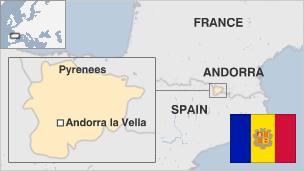I'm not very good at conclusions, I never have been. I can't tell you how many rough drafts of papers I turned in that ended with: 'In conclusion, yes.' But since this isn't a first draft of a college paper, I will attempt to be more cohesive and coherent about this.
This conclusion is extra hard to write, because how do you close the book on such an extraordinary group of women? I've only scratched the surface here, there's so much more that could be said. I don't know exactly what it was, but something about being married to an unstable, tyrannical, king turned six seemingly ordinary girls into strong, admirable women, who will be spoken about forever.
Catherine of Aragon might still have been famous without Henry, she was the daughter of the brilliant Queen Isabella of Castille and Leon after all, but the story of her bravery and stallwartness in the face of Henry's persecution sets her apart from not only Henry's other wives, but from all Queens in history. She was brilliant, pious, and loving, and certainly deserved better than she got. She was a metaphorical saint to the point that there's a movement to canonize her so she can be a literal saint.
Anne Boleyn's ambition and drive spurred the English Reformation, and put England on a path that would change the face of history forever. She held the attentions of a capricious King for nearly a decade, and managed to enact enormous social change during that time, something none of Henry's other Queens did. She's controversial, sure, but you can't deny that without her not only would England not have her most illustrious monarch--Elizabeth I--but England may have forever remained a Catholic nation. She used her beauty and intelligence to shape history, not bad for a daughter of the minor nobility.
Jane Seymour was known for being gentle and kind, and as being the queen that Henry loved the most. She gave birth to Henry's only son--Edward--and managed to bring a sense of peace and prosperity to the English court. Jane made a home, and brought calm. You could say that she cleaned up Anne Boleyn's mess. She isn't known for having any great political power, or bringing about any great change, but you can't deny that she had an enormous emotional impact on Henry and the people around her.
Anne of Cleves and Henry may have been married less than a year, but she was the smartest out of all Henry's wives. She knew when to yield, and doing so bought her a life of wealth and independence, as well as the dubious honor of being close to the King. She lived a happy life, and died peacefully. Not something that any of Henry's other wives can say they did.
Catherine Howard was young and naive. She was thrust by uncaring relatives into a world that was much too complex for her, and she was crushed underneath the weight of it all. She was an unexceptional Queen of England, but her story is by far the saddest.
Catherine Parr managed to have Mary and Elizabeth restored to the line of succession, ending a civil war years before it began. It's thanks to her that England was able to enjoy the political stability of the Elizabethan era. She was clever and pious, and managed to weather the storm of Henry's dissatisfaction. She was married almost as many times as Henry himself, but never quiet managed to find happiness. She was the first of England's queens to publish under her own name, and served as role model to both Elizabeth I and Lady Jane Grey.
Henry VIII married six different women. While he definitely had a type--smart, pretty, musically talented--the women he married definitely were not carbon copies of each other. Each of these women had a distinct personality, and each of them had a distinct impact on Henry. While not all of them made large political marks, all of them influenced the monarchs of the Tudor era.
Part One Part Two Part Three Part Four Part Five Part Six Part Seven Part Eight
This conclusion is extra hard to write, because how do you close the book on such an extraordinary group of women? I've only scratched the surface here, there's so much more that could be said. I don't know exactly what it was, but something about being married to an unstable, tyrannical, king turned six seemingly ordinary girls into strong, admirable women, who will be spoken about forever.
Catherine of Aragon might still have been famous without Henry, she was the daughter of the brilliant Queen Isabella of Castille and Leon after all, but the story of her bravery and stallwartness in the face of Henry's persecution sets her apart from not only Henry's other wives, but from all Queens in history. She was brilliant, pious, and loving, and certainly deserved better than she got. She was a metaphorical saint to the point that there's a movement to canonize her so she can be a literal saint.
Anne Boleyn's ambition and drive spurred the English Reformation, and put England on a path that would change the face of history forever. She held the attentions of a capricious King for nearly a decade, and managed to enact enormous social change during that time, something none of Henry's other Queens did. She's controversial, sure, but you can't deny that without her not only would England not have her most illustrious monarch--Elizabeth I--but England may have forever remained a Catholic nation. She used her beauty and intelligence to shape history, not bad for a daughter of the minor nobility.
Jane Seymour was known for being gentle and kind, and as being the queen that Henry loved the most. She gave birth to Henry's only son--Edward--and managed to bring a sense of peace and prosperity to the English court. Jane made a home, and brought calm. You could say that she cleaned up Anne Boleyn's mess. She isn't known for having any great political power, or bringing about any great change, but you can't deny that she had an enormous emotional impact on Henry and the people around her.
Anne of Cleves and Henry may have been married less than a year, but she was the smartest out of all Henry's wives. She knew when to yield, and doing so bought her a life of wealth and independence, as well as the dubious honor of being close to the King. She lived a happy life, and died peacefully. Not something that any of Henry's other wives can say they did.
Catherine Howard was young and naive. She was thrust by uncaring relatives into a world that was much too complex for her, and she was crushed underneath the weight of it all. She was an unexceptional Queen of England, but her story is by far the saddest.
Catherine Parr managed to have Mary and Elizabeth restored to the line of succession, ending a civil war years before it began. It's thanks to her that England was able to enjoy the political stability of the Elizabethan era. She was clever and pious, and managed to weather the storm of Henry's dissatisfaction. She was married almost as many times as Henry himself, but never quiet managed to find happiness. She was the first of England's queens to publish under her own name, and served as role model to both Elizabeth I and Lady Jane Grey.
Henry VIII married six different women. While he definitely had a type--smart, pretty, musically talented--the women he married definitely were not carbon copies of each other. Each of these women had a distinct personality, and each of them had a distinct impact on Henry. While not all of them made large political marks, all of them influenced the monarchs of the Tudor era.
Part One Part Two Part Three Part Four Part Five Part Six Part Seven Part Eight






